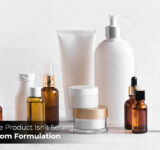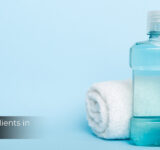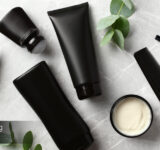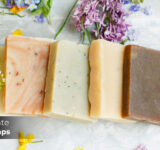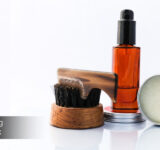- 24/03/2023
- Author
As a skincare brand, you want to provide the best products to your customers. At the same time, you would like to ensure that they are environmentally friendly, safe, and suitable for people with different skin types and textures. Here is where the skincare certificates come into play. A product that is certified by any government or independent body gets more preferred by the customers.
For example, people look for things like cruelty-free, BPA-free, gluten-free, etc. on the labels of the products. The products that are certified to be free from chemicals and artificial preservatives are preferred by the end users as they are considered to be safer for the skin.
In this article, we will look at some of the top skincare specialist certifications that every skincare must aspire to get for their products. Let’s get more information about these certifications one by one now.
1. USDA Organic
Brands and manufacturers that use natural ingredients in their products usually want to get holistic skin care certification online. One of their primary requirements is getting USDA Organic certification. It is provided by the U.S department of agriculture and ensures that the ingredients used in the products aren’t produced by using synthetic fertilisers, pesticides, preservatives, GMOs, and other banned methods.
The products that contain USDA Organic certification contain at least 95% of the organic ingredients in them. Skincare products and even essential oils can get this skincare certification if they meet the USDA Organic standards.
2. Leaping Bunny
A skincare product with a leaping bunny label means that it is a cruelty-free product. It is one of the most popular certificates for skincare products. Personal care, household, and makeup products can also contain the leaping bunny certification. The products that contain this certification ensure that no animal testing is done while developing the product formula or testing them.
It not only applies to the formula or the entire product but also applies to the ingredients used in them. As a result, the brands that test their products, ingredients, or formulas on animals cannot get this certification.
3. ECOCERT
The products with the ECOCERT certifications imply that they are in alignment with the social and environmental requirements specified in the standard. The brands that want to get this certification for their products should get their entire process audited from raw materials to the final production stage.
ECOCERT also organises an on-site inspection at any time during the year to verify the legitimacy of the products. Some samples are also verified in the lab before certifying them. The brands willing to promote the practices that create a positive impact on the environment usually get this certification for their offerings.
4. GMP (Good Manufacturing Practises)
The quality standards of the products can be verified through the GMP skincare certification. It implies that the products are safe for topical application and do not contain any contaminants that may be harmful to the skin and health of the end users. The entire production cycle from raw ingredients, equipment, personal hygiene, premises hygiene, etc. is verified in the GMP certification acquisition process.
It is based on the guidelines set by WHO (World Health Organisation). Therefore, it is considered to be an important certification for skincare products.
5. NPA (Natural Product Association)
A product that contains an NPA label means that it is truly natural. Therefore, it is one of the best natural skincare certifications for brands that boast of using natural ingredients in their products. Cosmetic and personal care brands can also get this certification for their offerings.
The brands that want this certification should ensure that all the ‘Good Manufacturing Practices’ supported by NPA are conformed while manufacturing the products. Many other forms of certifications are also issued by NPA for brands that aspire to get global recognition for their products.
6. Cruelty-Free International
Cruelty-Free International is an organisation that offers different programmes to validate that the products are cruelty-free. It implies that no animals were harmed or tested during any stage of production. The leaping bunny programme is also offered by this organisation.
The purpose of establishing Cruelty-Free International was to ensure that no animals get harmed in any laboratory. Many celebrities and NGOs associated with them carry their noble cause and deeds forward.
7. Cradle-To-Cradle
Cradle-to-cradle certification implies that the products were produced through sustainable means. It includes both the environmental and social standards that brands aspire to get internationally acknowledged and recognised. It covers five categories that include:
- Renewable Energy and Carbon Management
- Social Fairness
- Water Stewardship
- Material Health
- Recycling or Reuse of Materials
As a result, the products that contain this certification can be considered truly sustainable and rewarding for the well-being of society and human beings.
Conclusion
We hope that you understood the natural skincare certifications that you must get for your products. If you do not have the resources or time to acquire these certifications, you can outsource the manufacturing part of your business to a Private Label Skincare Manufacturer who has these certifications.
For example, Bo International has the GMP, Kosher, Halal, and several other safety and sustainability certifications. As a result, collaborating with them can prove to be beneficial for the reputation of your brand as well.
They are a leading private label skin care manufacturer in India and produce skin care products in bulk. As a result, they are able to provide the products at wholesale rates. Bo International accepts custom formulas and requests to accommodate the evolving requirements of its clients.
Their association with top logistics firms enables them to deliver your products safely within the given deadlines. Contact their sales executive today to know more about their private label services and offerings.
